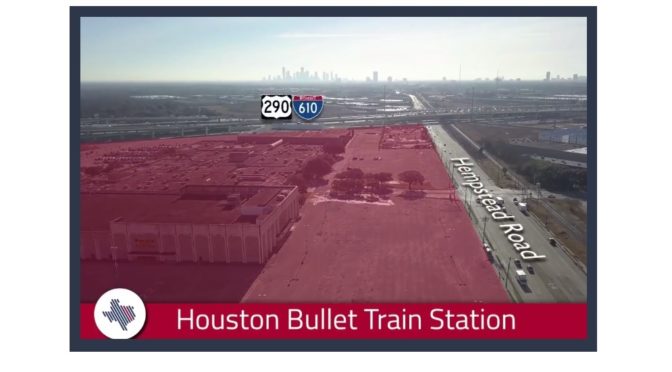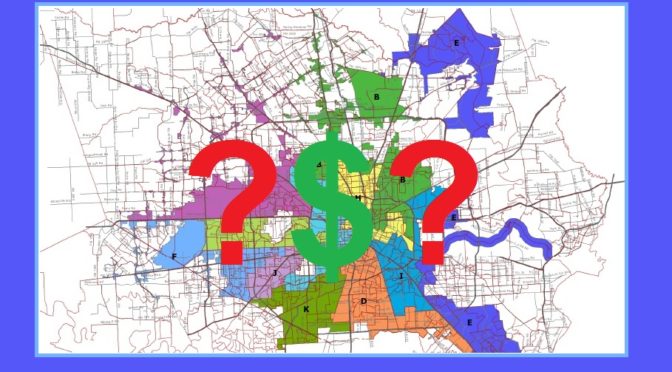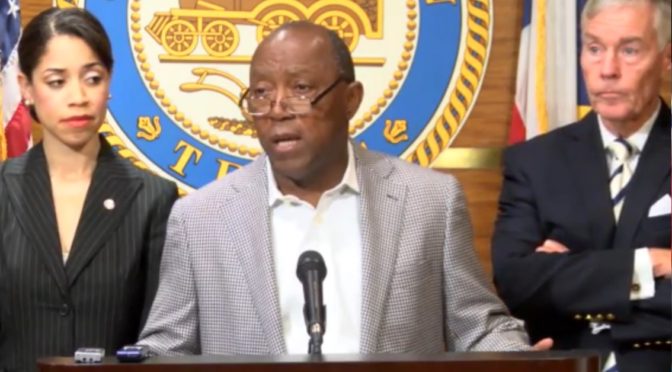
Even in the face of uncertainty and some fierce opposition, the bold plan for a
high-speed rail line connecting Texas' two largest metros marches forward. In fact, as Dug Begley of the
Houston Chronicle reports, yesterday's news on the project represents a rather significant leap forward...
Once a Houston destination for shopping, movies and … Continue Reading ››

After years of discussion and, failed attempts, and being a central focus of the last Mayoral election, Mayor Turner has likely decided that now is not the time to ask voters to repeal Houston's self-imposed Revenue Cap. As Rebecca Elliot of the Houston Chronicle reports, the surprise is a bit more complicated than your normal …
Continue Reading ›› 
If a budget is truly a statement of beliefs, then the City of Houston has just learned a lot about its new Chief Executive.
Delivering on a
promise made just a months earlier, Houston Mayor Sylvester Turner has shepherded a 2016 municipal budget through City Council, and its been done in what appears to be …
Continue Reading ››
A Voice for the Rest of Texas


